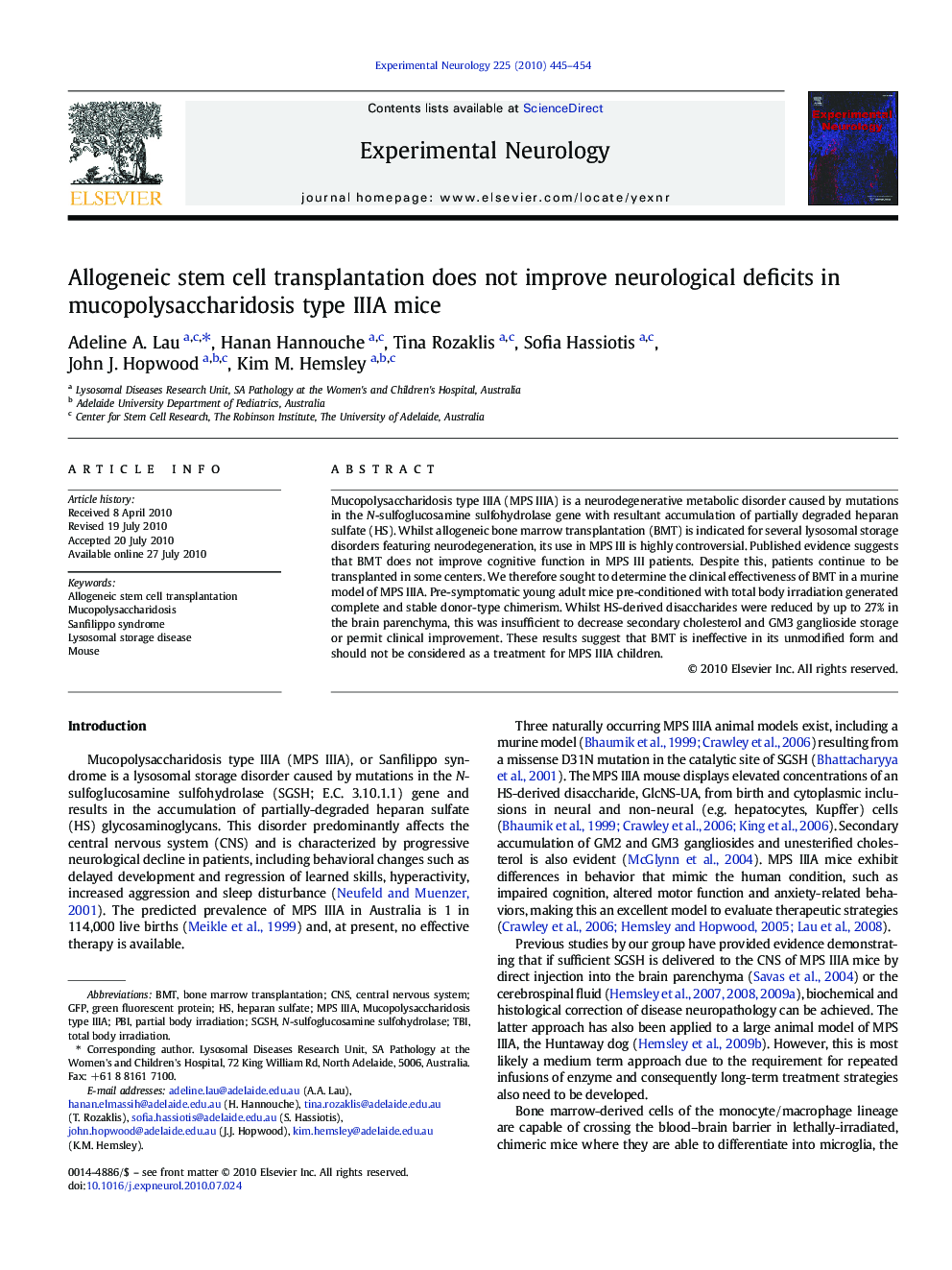| Article ID | Journal | Published Year | Pages | File Type |
|---|---|---|---|---|
| 3056005 | Experimental Neurology | 2010 | 10 Pages |
Mucopolysaccharidosis type IIIA (MPS IIIA) is a neurodegenerative metabolic disorder caused by mutations in the N-sulfoglucosamine sulfohydrolase gene with resultant accumulation of partially degraded heparan sulfate (HS). Whilst allogeneic bone marrow transplantation (BMT) is indicated for several lysosomal storage disorders featuring neurodegeneration, its use in MPS III is highly controversial. Published evidence suggests that BMT does not improve cognitive function in MPS III patients. Despite this, patients continue to be transplanted in some centers. We therefore sought to determine the clinical effectiveness of BMT in a murine model of MPS IIIA. Pre-symptomatic young adult mice pre-conditioned with total body irradiation generated complete and stable donor-type chimerism. Whilst HS-derived disaccharides were reduced by up to 27% in the brain parenchyma, this was insufficient to decrease secondary cholesterol and GM3 ganglioside storage or permit clinical improvement. These results suggest that BMT is ineffective in its unmodified form and should not be considered as a treatment for MPS IIIA children.
Research highlights►Mucopolysaccharidosis type IIIA (MPS IIIA) is a neurodegenerative disorder caused by mutations in the N-sulfoglucosamine sulfohydrolase gene. ►Allogeneic bone marrow transplantation (BMT) effectively treats neuropathology in several neurological lysosomal storage disorders, but not in MPS IIIA patients. ►BMT in young adult MPS IIIA mice resulted in successful engraftment but was ineffective at treating primary and secondary storage and did not improve clinical symptoms. ►These results suggest that BMT should not be considered as a treatment for MPS IIIA children in its unmodified form.
